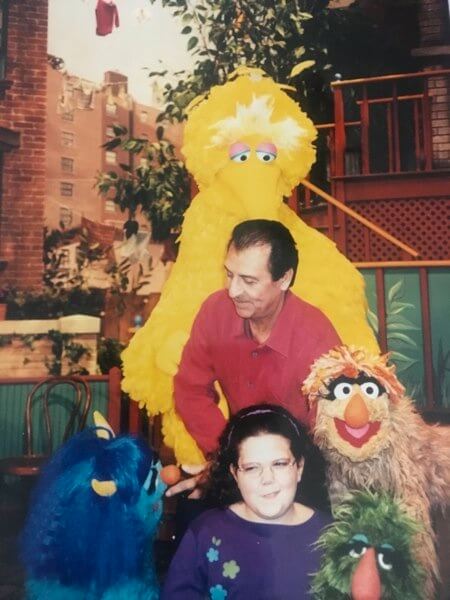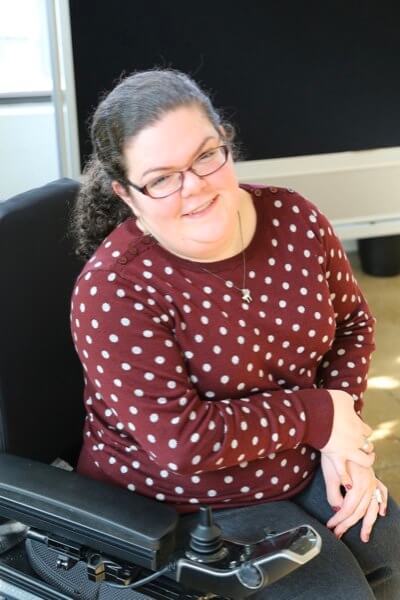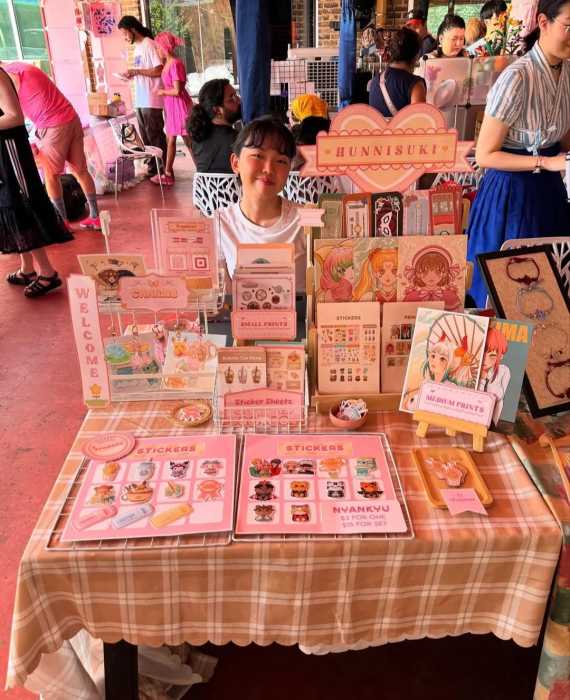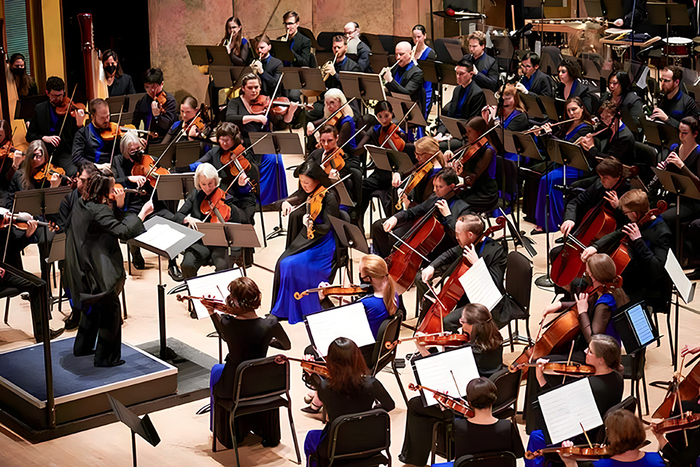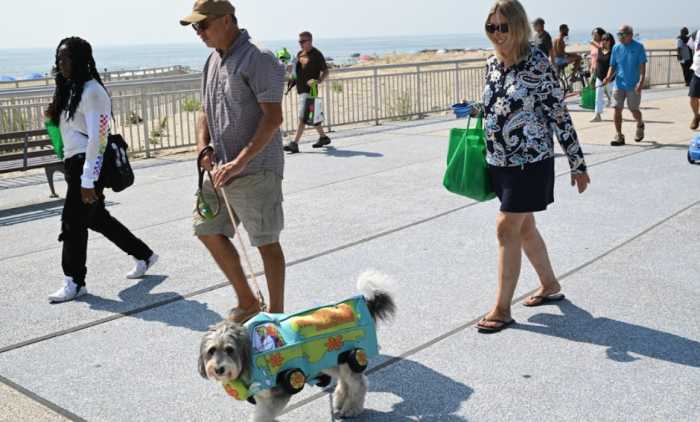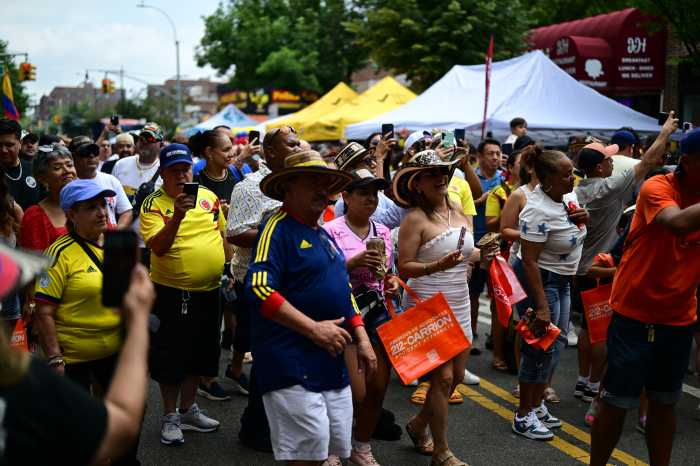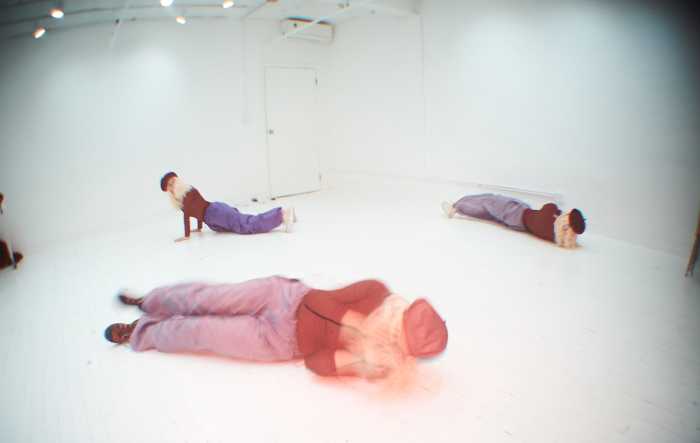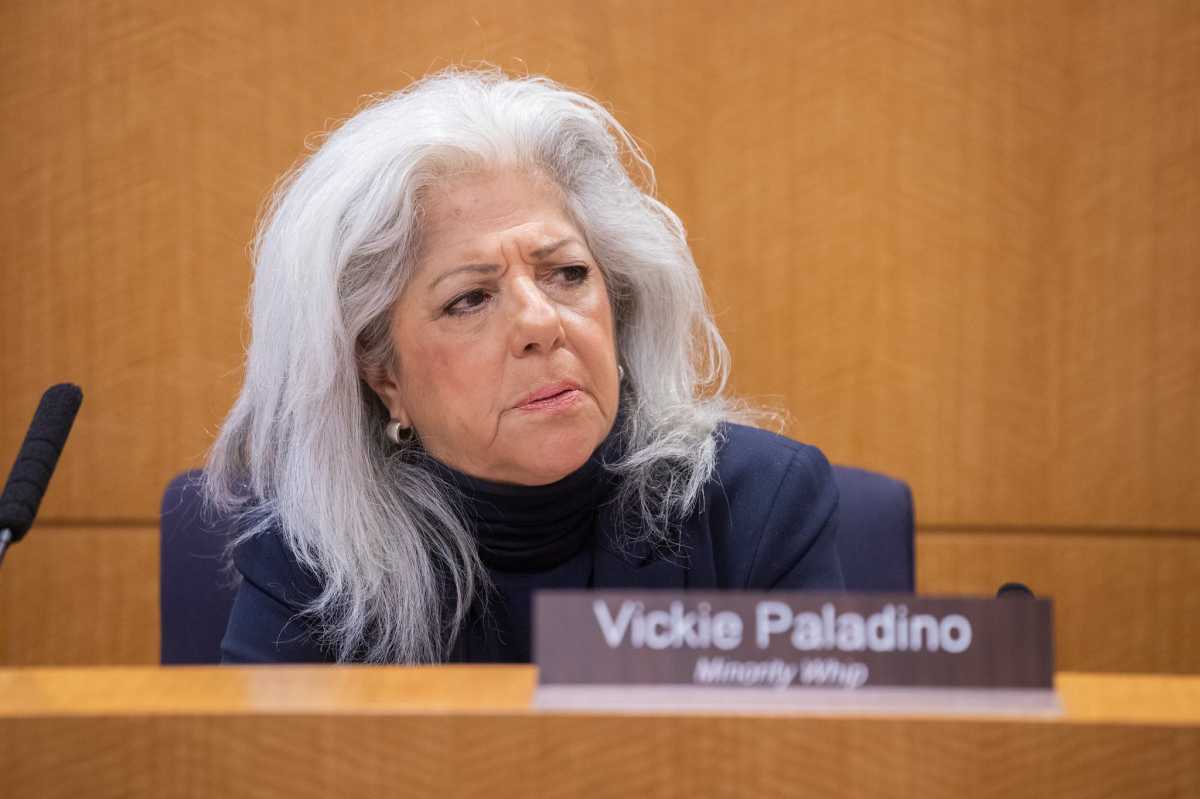By Tammy Scileppi
Big Bird encounters a delivery man with many boxes for 456 Sesame Street. He said someone is moving to Sesame Street. Excitedly, Big Bird runs to tell Maria in the Mail It Shop, where he meets Mrs. Rosen and her daughter Emily. Emily talks briefly about her condition and leaves with Big Bird for a tour.
Just like Telly, Emily is a member of the Triangle Lovers Club. Next, she plays with her pet goldfish Arnold, who makes fast friends with Dorothy and Elmo. Mrs. Rosen drops by again and helps Emily into her wheelchair.
The sun is setting and it’s getting dusk, the relaxing theme of “Sesame Street” plays while Emily plays the theme on her clarinet.
Those were scenes in which 10-year-old Emily Ladau was featured on the children’s television show, to educate kids about her life with a physical disability. In 2002, she appeared in several episodes of “Sesame Street,” which were filmed at Astoria Kaufman Studios.
Now 26, Ladau said she is proud of her many accomplishments as an empowered disabled woman, who has become a prolific writer, speaker, and passionate disability rights activist.
The Long Island native maintains meaningful ties with her friends from Queens, where she has connected with other disabled people through her work. She does a podcast with a local resident.
As an advocate, Ladau has fought tirelessly for those in her community who have no voice, hoping to achieve inclusivity for people with disabilities, and tells her readers and followers, “I live life on wheels and write about it. Disability rights are my passion.”
As a speaker, Ladau often spreads her message about a variety of topics relevant to “really cool people who happen to be disabled.” She also uses her blog, Words I Wheel By, as a platform to address discrimination and to encourage others to understand the experience of having a disability in more positive, accepting, and supportive ways.
Her work has been featured in numerous online publications, including The New York Times, Salon, The Daily Beast, The Establishment, The Huffington Post, and SELF.
In Vice – Motherboard, she writes: “I am not broken. There is nothing that needs to be changed about my state of being. There is nothing I want to change. I am a whole human being whose body moves forward through life in turns of the wheel, and my reality is not for anyone else to decide.”
And she feels deeply about and shares in the experiences of her sisters with disabilities. For a while, Ladau was disappointed with what she saw as a lack of inclusivity by the Women’s March movement and wrote, “What every one of us needs to do right now is dig deeper into these issues, to recognize that disability rights must always have a seat at the social justice table. I feel like my work as an activist has turned me into a broken record, because my urging for people to dig deeper than surface-level mentions of disability is constant. I only wish a major effort like the Women’s March, which is a critical part of the overarching movement for women’s rights, had already gotten this message from the disability activists who have been advocating tirelessly.”
Recently, thanks to Ladau’s strong words and persistent protests, the Women’s March has recognized and embraced women with disabilities as one of their own, and she has decided to join them.
The activist has maintained that people who fight for social justice and some political candidates seem to forget that there are 56 million Americans with disabilities, according to the U.S. Census Bureau, and that this forgotten voting block faces numerous, often unresolved issues in their daily lives, which need to be addressed through vigorous policies. For instance, only one in three people who are working-age with a disability has a job. Of those, around 400,000, work in sheltered workshops where it is legal to pay people less than minimum wage.
“It’s mind-blowing,” said Ladau, who takes on a host of other crucial issues, including the high rate of domestic violence and sexual abuse suffered by disabled women. She also fights for smooth sidewalks.
At times, the media portrays disability in less than acceptable ways, according to Ladau. And it seems that even in these progressive, enlightened times, many people view disabilities in a negative light, perhaps as a burden to caregivers and even to those using wheelchairs, who are dealing with limitations daily.
These are some of the issues that the activist, who like her mother is living with Larsen Syndrome — a disorder that affects the development of bones throughout the body — has been speaking out about and hoping to change. She said storytelling is at the heart of her work in disability activism, and she addresses everything from practical presentations on using social media for effective advocacy to deeply personal conversations about her experiences as a disabled woman.
Ladau often reminds folks that the rights afforded to all humans by the Constitution do not prevent the stigmatization and injustices experienced by disabled people and points out that it’s why legislation such as the Americans with Disabilities Act came to exist due to the hard work of activists. Yet, she explains, such legal protections still do not prevent prejudice or exclusion of disability — a major social justice issue.
And considering that one in five Americans has disabilities, she said, “it’s time to learn that disability can intersect with every identity. Every. Single. One.”
In educating people about what it’s like to live with a disability like hers, Laudau said she works with the idea that “if you want the world to be accessible to the disability community, you need to make the disability community and all the ideas and concepts surrounding disability accessible to the world. So, I believe that advocacy is definitely a two-way street. And I work to make my experiences something that people can understand.”
The creative activist said she is very proud of the fact that she has taken her personal passion for disability advocacy and turned it into a professional career. She was recently recognized by the American Association of People with Disabilities with the Paul G. Hearne Emerging Leader Award.
“With that award comes some funding that I’m going to use to begin a disabled writers fellowship program,” she said. “So I’ll be working with writers with disabilities through an organization I work for called Rooted in Rights, where I currently serve as editor-in-chief of the blog, and I’m going to be mentoring young writers with disabilities and helping them find a pathway as they start their careers.”
Pointing out that language and labels are important in describing people with disabilities, Ladau said she prefers to be called ‘a disabled woman’ vs. ‘a woman with a disability.’
“I would say my disability doesn’t define me as a whole person. It’s one aspect of my multi-faceted ID,” she said. “And I do consider disability to be an identity and something that I’m proud of, so in the same way that I say, ‘I am a Jewish woman,’ I put the identity before the word ‘woman.’ It’s something I consider to be a part of me.”
With her mom being disabled, young Ladau grew up in an environment where that was all she knew.
“Since my mom and I share the same disability. I have always had a built-in role model in my life who really showed me how to advocate for myself and how to fight for the things that I need and someone to show me that having a disability doesn’t mean that you cannot live a full life,” she said.

